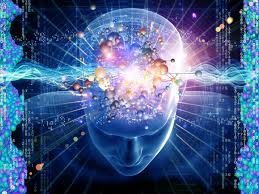Science and Work are two fields which affect the life of every man, and it is good to dedicate some thought to them.
“Science” comes from the Latin word scientia, and since the Enlightenment it has had the meaning of any systematic or exact recording of knowledge, including philosophy. Positivism then broke this union, narrowing the scientific field of research mainly to the physical aspect.
Science, therefore, is a system of knowledge obtained through methodical and rigorous procedures and due to an organized activity of research. The aim is to arrive at a description, realistic and objective, of reality and laws which govern the phenomena under consideration. The process of acquisition is called the scientific method, and is developed through observation and experimentation.
The ultimate goal of Science is to understand nature, even if it is not able (yet) to demonstrate nor produce absolute truths or describe, in absolute terms, how nature is. Science observes, verifies and speculates. It locates a phenomenon in an abstract space-time model and envisages, through experimentation, its possible developments. If the experimental basis eventually acquires a solid foundation, the hypothesis turns into a theory, that is, in the formulation of general principles which govern the considered perspective, to end with the formulation of a law, which is a generalization and has an absolute value in its scope.
Nowadays, Science mainly studies the laws which govern manifestations in the physical domain and scarcely probes the spiritual one, even if the Masters urge us to do so:
“… Science is bringing man to the mastery of Spatial Fire, and all strivings toward the discovery of cosmic correlations are bringing cosmic power to humanity. Therefore, science must illumine the consciousness and affirm humanity in the Infinite.”
(Agni Yoga collection – Infinity II § 265)
*******
“Work” from Latin labor (labor, effort) means an activity aimed at a goal, conducted with energy and effort.
Thus work is a productive activity which requires an expenditure of energy, both physical and intellectual, to reach a goal. The work produces energy and provides access to essential good, material or immaterial, in order to live or to live better.
It is normal, especially today, to think of working as a right. One must agree: without work a man loses his dignity; there is no vision of the future and the power of hope is lost; any access to some social life is precluded. Yet it is worth remembering that work, in its ordinary sense, is directly proportional to human needs. Excluding basic needs (which are many considering our average standard of living: energy, food, house, clothing, health, education, entertainment, etc.), much of the work force has devolved to meet needs which are not really necessary. It is good to start considering that the new human Culture will be based on a reduction of secondary needs, also because the planet’s resources which have allowed, up to now, this kind of economic growth, are not inexhaustible and indeed, for some, are approaching depletion.
Work is not always thought of as a duty. Yet this concerns its main value. Whoever gets paid has a duty to produce a result, the employer has a duty to work to provide work. We have a duty to work for our own well-being, that of the family, the community, the nation, the entire planetary system because all these areas are closely related and interdependent. This requires a profound change in attitude that sees the transition from an economy based on the fulfillment of purely selfish needs, to an economy looking to the needs of humanity.
But work is much more:
“The rhythm of labor is the adornment of the world. Labor may be regarded as a victory over everyday routine. Each hard-working man is a benefactor of humanity. To imagine Earth without workers is to see a reversion to chaos. Invincible tenacity is forged by labor; precisely everyday work is the accumulation of the treasure. The true toiler loves his labor and understands the significance of tension.
Work has already been called prayer. The highest unity and quality of labor arises from its rhythm. The best quality of work brings forth the rhythm of the Beautiful. Each labor contains within itself the concept of the Beautiful.”
(Agni Yoga collection – AUM § 322)
Thus we can assert, regarding the governing principle of this human activity, that:
The basis of working is Joy
What links Science to Work and how do they interact?
With extreme simplicity, a possible answer is that Science is a Work and that Work is a Science: the two are inseparable.
That science is a work is proved by all scientists and researchers who are committed daily in a variety of research. That work is a science is not so obvious.
Yet if Science is the systematic and accurate recording of knowledge, every job becomes a potential field of research, not only to define its steps or best methods, but to give every work and worker the dignity they deserve and to safeguard the creative aspect which every work must have by right.
Not all will be able to appreciate this fundamental difference, that between a job with no interest and a job which can enthuse, and some will prefer the former, but this does not diminish the distinction.
The same scientific principle can and should be applied to the spiritual work. The expansion of consciousness requires hard work; perseverance; profound observation; detachment; knowledge of the laws governing it; love for ourselves and others, and, last but not least, for the reason for searching. The spiritual quest is, in fact, a scientific research: you ascend the spiral only by sure acquisitions.
“… Each form of work has a creative domain. Earthly thought binds one within earthly limits, but evolution contains the Higher Principle.
Books should be written on the different domains of labor. Therein servile, circumscribed toil should be compared with unbounded creative labor. It is necessary to demonstrate in a strictly scientific manner the possibilities which can be reached through a regeneration of the quality of labor. People who are depressed by the daily routine lose sight of the horizon. So, too, the eyes of man cannot at once become accustomed to the light. Let science in all ways aid the expansion of the horizon.”
(Agni Yoga collection – AUM § 301)







